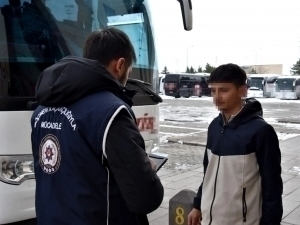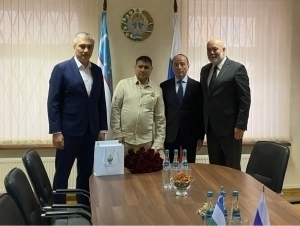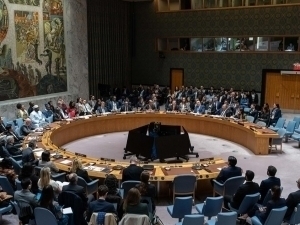May 15 in Istanbul: New chapter in Russia-Ukraine peace efforts?
World
−
12 May 2025 9469 5 minutes
The Russian-Ukrainian war, which began in February 2022, has become one of the most painful and multifaceted topics of world politics today. Against the backdrop of protracted conflicts, casualties, and international sanctions, May 15, 2025, may go down in history as the day when a new era of negotiations could begin.
So, who initiated the negotiations? Is Ukraine's strategy a compromise or a response to international pressure? How realistic is the proposal to start negotiations without any preconditions? Or is this also a diplomatic game? Let's look for answers to these questions today.
On the night of May 11, Russian President Vladimir Putin proposed resuming direct negotiations with Ukraine. He expressed his support for continuing this meeting without any preconditions, from the point where it was suspended in 2022. He chose Istanbul, where previous talks had taken place, as the venue, and gave a specific date – May 15, 2025.
This proposal marked a significant shift in Russian foreign policy, where military action has been a priority in recent years.
“Our proposal is on the table. Now the decision depends on the Ukrainian government and its curators, who, apparently, are driven by their political ambitions rather than the interests of their people and want to continue the war with Russia through the hands of Ukrainian nationalists.
I repeat: Russia is ready for negotiations without any preconditions. Now there are military actions, a war, and we propose to continue the negotiations. So what’s wrong with that?” Putin said.
His statement shows that he is taking the negotiations seriously.
He said that “the main goal is to eliminate the causes of the conflict and achieve a long-term, stable peace.”
At the same time, Putin said that there is a possibility of reaching an agreement on a real and long-term ceasefire during these talks.
After Putin made this proposal, attention turned to the Ukrainian side. And here the chain of events took another interesting turn.
Shortly after that, on May 11, Ukrainian President Volodymyr Zelensky made a statement on the Telegram channel. In it, he openly declared his readiness for face-to-face negotiations with Russia.
“We expect a full and long-term ceasefire tomorrow, which will be the necessary basis for diplomacy... I will wait for Vladimir Putin in Turkey on Thursday. Personally. I hope that the Russians will not look for excuses this time,” Zelensky said.
His words showed that the Ukrainian side is now open to a diplomatic solution and is ready for real results. At the same time, Zelensky said that Kyiv would be ready to start talks if Russia officially confirms the ceasefire starting on May 12.
There is an important point from a diplomatic point of view: this time, Ukraine is setting a minimum condition for the start of negotiations — a ceasefire. Earlier, in the negotiations in 2022–2023, Kyiv put forward more strategic conditions (including Russia's withdrawal from the territories, security guarantees, the issue of NATO, etc.). Now the main focus is on "stopping the bloodshed."
Against the background of these events, the position of several international leaders has increased the likelihood of negotiations.
US President Donald Trump has openly called on Zelensky to agree to talks.
“They can at least identify the possibility of an agreement ... MEET, NOW!” Trump wrote.
He explained this call by the absurd prolongation of the war.
Turkish President Recep Tayyip Erdogan, on May 11, supported Putin’s offer, saying his country was ready to be a venue for talks. This would reinforce Turkey’s role as a neutral mediator since the beginning of the war.
The European Union and international observers have been positive about the talks. European countries, especially Germany and France, have supported the ceasefire, considering the threat the war poses to the European security system. They, in turn, have focused on the role of the United States – that is, without Washington’s active involvement in the process, it may be difficult to achieve a real truce.
The talks, which are expected to take place on May 15, will be a test not only for the war-weary parties but also for the entire international community. If the leaders of Russia and Ukraine meet in one place and have the opportunity to talk face to face, it could be a historic moment. But will Putin and Zelensky meet in Istanbul? The Russian leader has been raising the issue of Zelensky's legitimacy for a year and refusing to negotiate with him.
Russian President Vladimir Putin, who has been elected president no less than five times and has been in power for 25 years, said that the mandate of Ukrainian leader Volodymyr Zelensky, who took office on May 20, 2019, expired on May 20 last year. The elections were supposed to be held in March 2024, but the continuation of hostilities prevented this.
But the most important question is: are the parties ready for peace this time? Or will this be just another diplomatic initiative?
These questions remain open for now. And we will get the answer on May 15.
Live
All



